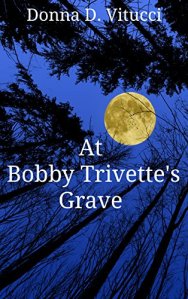Only One Thing To Do

Hemingway wrote to Fitzgerald, his friend and competitor: “You just have to go on when it is worst and most helpless—there is only one thing to do with a novel and that is to go straight on through to the end of the damned thing.”
The size and breadth of a book overwhelms me –the writing of it. Writing the novel’s like taking medicine, in doses. I think of each chapter as a short story or a scene: one dose, just manage one swallow. Complete this, make this one piece entire and the best it can be and don’t fret over, don’t even think about what comes after. Self-trickery is the way I keep ahead of self-doubt. I certainly do not know the ending, and most times not even the why of the story. I look at the world, note circumstance and instances, I attribute reason where none exists.

I am disturbed by girls taken—Elizabeth Smart and others like her, here in my community a girl named Paige Johnson, who has never been found. The plaguing questions: why why, where are they, who would take them? I walk backwards to the trouble. It doesn’t need to be true, it’s not detective work, it’s less discovery and more burrowing into motive. I can’t see where I’m headed, till I arrive. Who could do such a thing, and how did they feel? Troubled, undoubtedly, and that trouble emerges via voice, voice of a character, a character in a situation, the more desperate and thornier the better.
Once I wrote a story called The Underneath. Touchpoint for the setting, the scene, the tension, the horror was the cellar of my childhood. Stuff under and behind, buried, covered up, secrets– the damp knuckled heart of all families. I regularly dig up my basement, excavate my childhood, assign motives to adults from my youth for the inexplicable things they did. I look and I can’t not see story.
Mommy sewed our baby doll pajamas, our school picture day outfits, our Easter dresses. She snapped thread with her teeth. She wielded pinking shears. Pinking shears. Does anyone else even know what they are?
This is the insular world of a character, a young girl, stewed in her family broth. She walked around with Catholicism for spine instead of backbone, with litanies of saints and church Latin as right and left hands. I thought everyone was Catholic. At school, at Brownies, on our street, the kids I played with and their families, we all attended Mass at the same church. What? You don’t know Mass, or Jesus Christ Our Savior? Can it be that others also don’t know the gut-trench of Lenten sacrifice or special intention Thursdays, or the Infant of Prague’s varied coat colors and the guilt-blessing of being chosen to change the clothes on that Jesus-boy-doll?
How to populate the world of the novel? Build from the inside out, from imagination and experience, history and supposing, initiating in that voice of that character, that one child, that one stolen girl. Hemingway called it the great “what if.” Follow the undoing, find that dropped spool, the bobbin losing its thread. There you have it. Story could, literally, be under your feet.

Donna Vitucci is Development Director of Covington Ladies Home, the only free-standing personal care home exclusively for older adult women in Northern Kentucky. She is a life-long writer, and was a finalist for the Bellwether Prize in 2010. Her stories have appeared in dozens of print and online journals, including Kentucky Review, Gargoyle, Hinchas de Poesia, Forge Literary Journal, Prick of the Spindle, Southern Women’s Review, The Butter, and Change Seven. Her novel, AT BOBBY TRIVETTE’S GRAVE , a coming of age story set in Kentucky, was released in June 2016 by Rebel ePublishers.
Donna’s second novel, SALT OF PATRIOTS, will be published in 2017.

Currently, Deborah Lee Luskin posts Lessons From the Long Trail about her thru-hike from Massachusetts to Canada over the spine of the Green Mountains. Twenty-five days living outdoors, overcoming obstacles (aka mountains, rocks, mud, streams and sore feet), has changed her outlook on life and helped clarify her goals, most of which have to do with advancing issues through narrative; telling stories to create change.
I’m writing the draft of my first novel at this very moment and so far between real life work and other things I managed to cough up 40,923 words since the 3rd of November using NaNo as inspiration though I didn’t officially signed up. This article is the first one I can relate when it comes to writing. This is exactly how I tackle writing obstacles- one problem at a time improvising as I go along caring for the plot the best I could.
Thanks for a very inspiring Guest Post